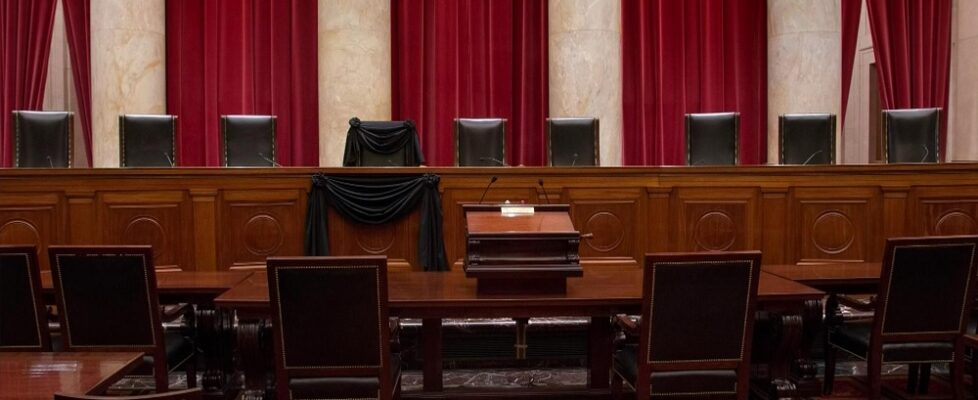US Supreme Court upholds CFTC authority in retail commodity fraud
On Monday, June 29, 2020 the US Supreme Court denied a petition by the defendants in the CFTC’s anti-fraud enforcement action against Monex Deposit Company and its affiliated companies and principals. The defendants’ petition had challenged the CFTC’s authority to bring enforcement cases against alleged fraud, an argument rejected last year by the US Court of Appeals for the Ninth Circuit.
The CFTC enforcement action being challenged, filed in 2017, charged the defendants with defrauding thousands of retail customers out of hundreds of millions of dollars, while executing thousands of illegal, off-exchange leveraged commodity transactions.
“This should put to rest any question of the CFTC’s authority to redress fraud in commodity markets,” said Robert A. Schwartz, the CFTC’s Deputy General Counsel for Litigation. “It also confirms that Congress meant what it said when it mandated that leveraged retail commodity transactions result in ‘actual delivery’ or conform to CEA regulation—the seller must actually hand over possession and control of the commodity.”
The Ninth Circuit’s decision, now final, confirmed (1) that the Commodity Exchange Act (CEA) empowers the CFTC to prosecute fraud in cash-commodity markets regardless of whether there has also been market manipulation; and (2) that in order to escape regulation under the CEA, a purveyor of leveraged retail commodity transactions must actually deliver that commodity, and may not rely on sham arrangements in which no commodity ever changes hands. In Monex’s case, the transactions were in metals, but these issues are also important in the context of digital assets including virtual currencies. Earlier this year, the CFTC issued final interpretive guidance on actual delivery for digital assets.
In its continuing litigation, the CFTC seeks disgorgement of ill-gotten gains, restitution for the benefit of defrauded customers, civil monetary penalties, and permanent registration and trading bans, and a permanent injunction from future violations of federal commodities laws, as charged.
The CFTC has issued several customer protection Fraud Advisories that provide the warning signs of fraud, including the Precious Metals Fraud Advisory, which alerts customers to precious metals fraud and lists simple ways to spot precious metals scams.
In the CFTC’s original civil action which led to the Supreme Court challenge, on September 6, 2017 it filed a civil injunctive enforcement action in the U.S. District Court for the Northern District of Illinois against three affiliated companies located in Newport Beach, California – Monex Deposit Company, Monex Credit Company, and Newport Services Corporation (collectively, Monex) – and Monex’s principals Louis Carabini and Michael Carabini. The CFTC Complaint charges the Defendants, among other claims, with defrauding thousands of retail customers nationwide out of hundreds of millions of dollars, while executing thousands of illegal, off-exchange leveraged commodity transactions.
According to the Complaint, Monex offers leveraged trading in gold, silver, platinum and palladium to retail customers through its “Atlas” program. Monex deceptively pitches leveraged trading through the Atlas program as a safe, secure and profitable way to invest in precious metals, the Complaint alleges. In reality, however, nearly everyone who placed leveraged trades in an Atlas account between July of 2011 and March of 2017 lost money, the Complaint alleges. According to the Complaint, over 12,000 trading accounts were used to place leveraged precious metals trades resulting in more than $290 million in customer losses between July 16, 2011 and March 31, 2017. The Complaint alleges that in order to push customers into the Atlas program and to generate trades, the Defendants employed high-pressure sales tactics, systematically downplayed the risks associated with the Atlas program, and falsely promised customers that Monex would act as the customers’ fiduciary and would always act in those customers’ best interests. As a result of Defendants’ conduct, many customers lost their life savings, while Monex and its owners pocketed millions of dollars, the Complaint alleges.
The Complaint further alleges that Defendants’ leveraged commodity transactions are unlawful because they were not, and are not, executed on or subject to the rules of a regulated exchange, as required by the Dodd-Frank Wall Street Reform and Consumer Protection Act of 2010, effective July 16, 2011.
The Complaint also alleges that the Defendants were required to register as Futures Commission Merchants (FCMs) but failed to do so in violation of the Commodity Exchange Act. Individual Defendants Louis and Michael Carabini are charged directly with the offering of the unlawful leveraged commodity transactions and charged with the fraud and registration violations as controlling persons of Monex who knowingly induced the underlying violations or failed to act in good faith.




